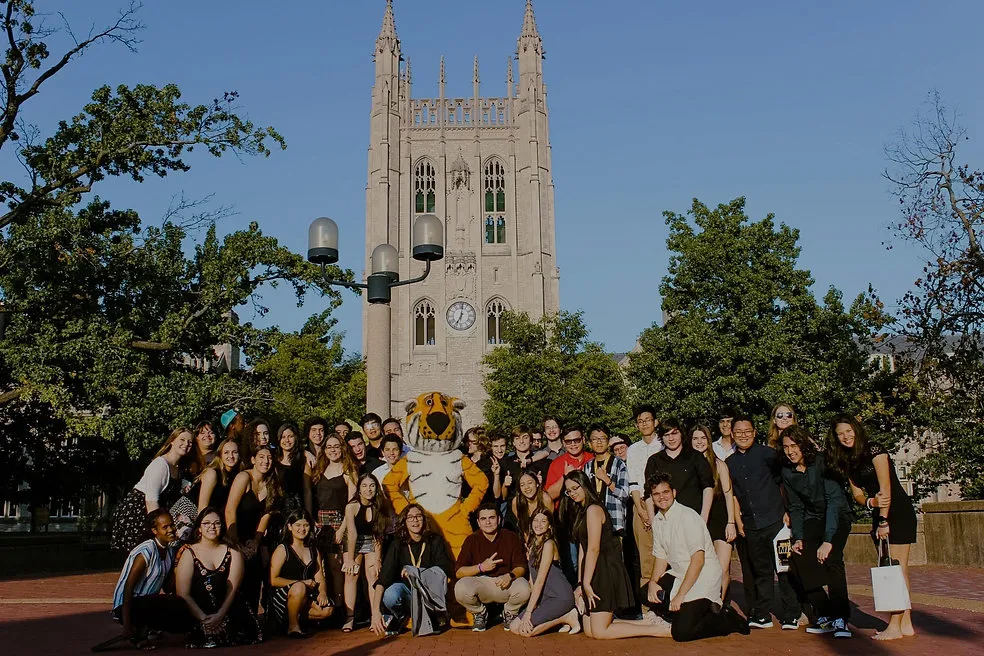University campuses are bustling centers of activity, offering students a wide range of events that extend learning beyond the classroom. These events are crucial to fostering community, encouraging personal growth, and providing opportunities for networking and professional development. From academic seminars to sports tournaments, campus events play a key role in shaping the university experience, allowing students to explore new interests, build skills, and connect with their peers.

Why Campus Events Matter
Campus events are more than just extracurricular activities; they provide essential opportunities for personal and professional growth. Here’s why they are important:
- Building Connections: Participating in campus events enables students to connect with fellow students, professors, alumni, and industry professionals. These connections can lead to new friendships, mentorships, and even job opportunities in the future.
- Developing Leadership Skills: Students who take part in organizing or leading events gain experience in planning, time management, and leadership. These skills are highly transferable to future careers.
- Cultural Awareness: Campus events often celebrate diversity and inclusion, offering students exposure to different cultures, perspectives, and ideas. This promotes a broader worldview and understanding of global issues.
- Stress Relief and Fun: Academic pressures can be overwhelming, and campus events offer a healthy outlet for students to unwind and enjoy themselves, whether through sports, performances, or social gatherings.
Types of University Campus Events
University campuses are home to a diverse array of events, each catering to different student interests and needs. Here are some common types:
1. Academic Conferences and Lectures
These events allow students to engage with experts in their field of study, learn about the latest research, and participate in discussions on relevant topics. Academic conferences often feature guest speakers, panel discussions, and networking opportunities.
2. Workshops and Skill Development Sessions
Universities often host workshops focused on career and personal development, such as leadership training, coding boot camps, or mental health seminars. These workshops help students gain new skills that enhance both their academic journey and future career prospects.
3. Cultural and Diversity Events
Cultural festivals, international nights, and heritage month celebrations highlight the rich diversity of the student body. These events give students a chance to experience different traditions, cuisines, and art forms while fostering a sense of community on campus.
4. Sports and Fitness Events
From intramural sports leagues to intercollegiate competitions, sports events are a cornerstone of campus life. They promote physical activity and school spirit, while also giving students an opportunity to relax and have fun outside of their academic schedules.
5. Student Clubs and Organization Events
Student clubs are vital in providing platforms for those with similar interests to come together. These clubs often host events like hackathons, debates, talent shows, and social mixers. Joining a club is a great way for students to pursue hobbies or career-related interests and make friends with similar passions.
6. Charity Drives and Social Causes
Many universities promote community engagement through charity events, fundraisers, and social advocacy campaigns. These events raise awareness on important issues and give students the chance to give back to society while developing a sense of responsibility and compassion.
How Campus Events Are Organized
Organizing campus events is often student-led, giving participants valuable experience in event management and teamwork. Planning and organizing an event involves several steps:
- Idea and Purpose: Determine the goal of the event. Whether it’s educational, cultural, or social, having a clear objective helps in the overall planning process.
- Budgeting and Funding: Identify the financial requirements and seek funding through university grants, sponsorships, or ticket sales. Staying within budget is crucial to the success of any event.
- Logistics: Secure venues, arrange equipment, and organize any required transportation or accommodation. Coordinating with campus facilities management is often necessary for larger events.
- Promotion and Marketing: Use flyers, social media, emails, and word-of-mouth to generate buzz around the event. Targeting the right audience is key to ensuring a good turnout.
- Execution and Management: On the day of the event, ensure everything runs smoothly. This involves managing participants, handling any unforeseen issues, and sticking to the schedule.
How Students Can Get Involved
Students can get involved in campus events in various ways:
- Attend Events: Simply attending and participating in different events is a great way to enrich your campus life. These activities provide a break from academics while helping you make new connections.
- Join a Club: Many clubs on campus organize their own events. By joining one, you’ll not only meet like-minded individuals but also have the chance to plan events that align with your interests.
- Volunteer: Volunteering for event planning committees or helping with logistics on event day can give you hands-on experience in project management and leadership.
- Start Your Own Event: If you have a unique idea, don’t hesitate to propose it. Many universities encourage students to take initiative and will support them with resources to bring their ideas to life.
Enhancing the Campus Event Experience
To ensure campus events are successful and impactful, universities often take several steps, such as collecting feedback from attendees to continuously improve the quality of the events. Promoting collaboration between different student groups, faculties, and even external organizations can elevate the scale and reach of the events.
Conclusion
Campus events are a vibrant and vital part of university life. They offer opportunities for learning, leadership, and personal growth while providing students with fun, relaxation, and cultural experiences. By engaging in these events, students can make the most of their time on campus, build lifelong connections, and gain experiences that will be valuable throughout their personal and professional lives. Whether you’re looking to network, develop new skills, or just have fun, there’s always something exciting happening on campus to suit every interest.